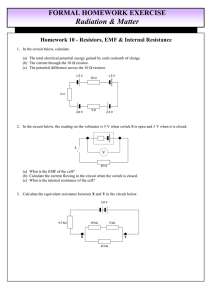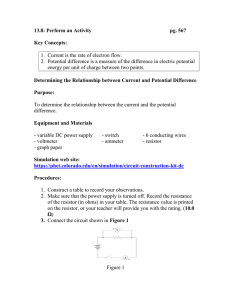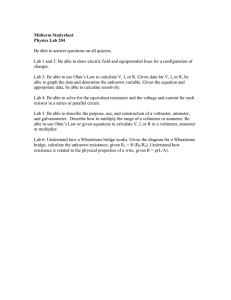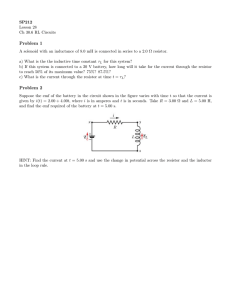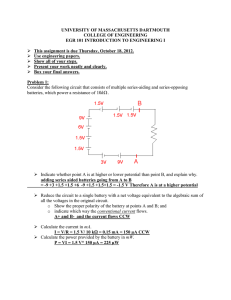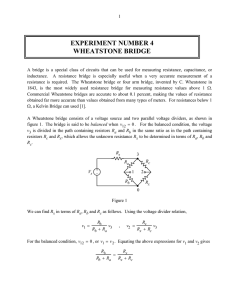Wheatstone Bridge
advertisement
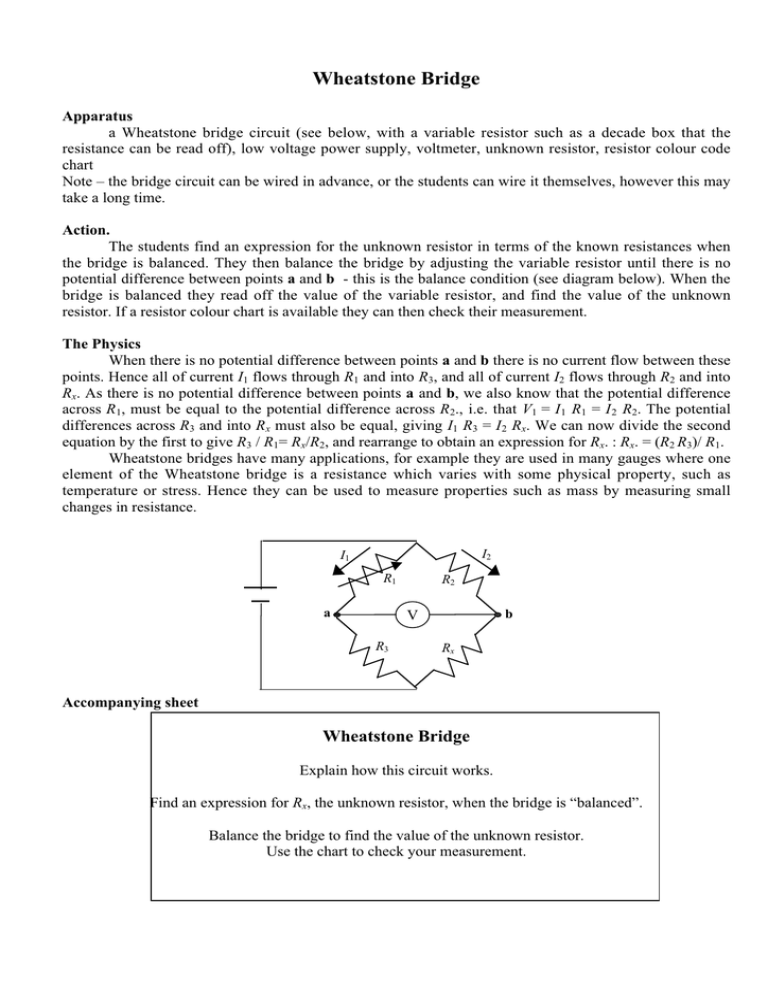
Wheatstone Bridge Apparatus a Wheatstone bridge circuit (see below, with a variable resistor such as a decade box that the resistance can be read off), low voltage power supply, voltmeter, unknown resistor, resistor colour code chart Note – the bridge circuit can be wired in advance, or the students can wire it themselves, however this may take a long time. Action. The students find an expression for the unknown resistor in terms of the known resistances when the bridge is balanced. They then balance the bridge by adjusting the variable resistor until there is no potential difference between points a and b - this is the balance condition (see diagram below). When the bridge is balanced they read off the value of the variable resistor, and find the value of the unknown resistor. If a resistor colour chart is available they can then check their measurement. The Physics When there is no potential difference between points a and b there is no current flow between these points. Hence all of current I1 flows through R1 and into R3, and all of current I2 flows through R2 and into Rx. As there is no potential difference between points a and b, we also know that the potential difference across R1, must be equal to the potential difference across R2., i.e. that V1 = I 1 R1 = I 2 R2. The potential differences across R3 and into Rx must also be equal, giving I1 R3 = I2 Rx. We can now divide the second equation by the first to give R3 / R1= Rx/R2, and rearrange to obtain an expression for Rx. : Rx. = (R2 R3)/ R1. Wheatstone bridges have many applications, for example they are used in many gauges where one element of the Wheatstone bridge is a resistance which varies with some physical property, such as temperature or stress. Hence they can be used to measure properties such as mass by measuring small changes in resistance. I2 I1 R1 a R2 b V R3 Rx Accompanying sheet Wheatstone Bridge Explain how this circuit works. Find an expression for Rx, the unknown resistor, when the bridge is “balanced”. Balance the bridge to find the value of the unknown resistor. Use the chart to check your measurement.
